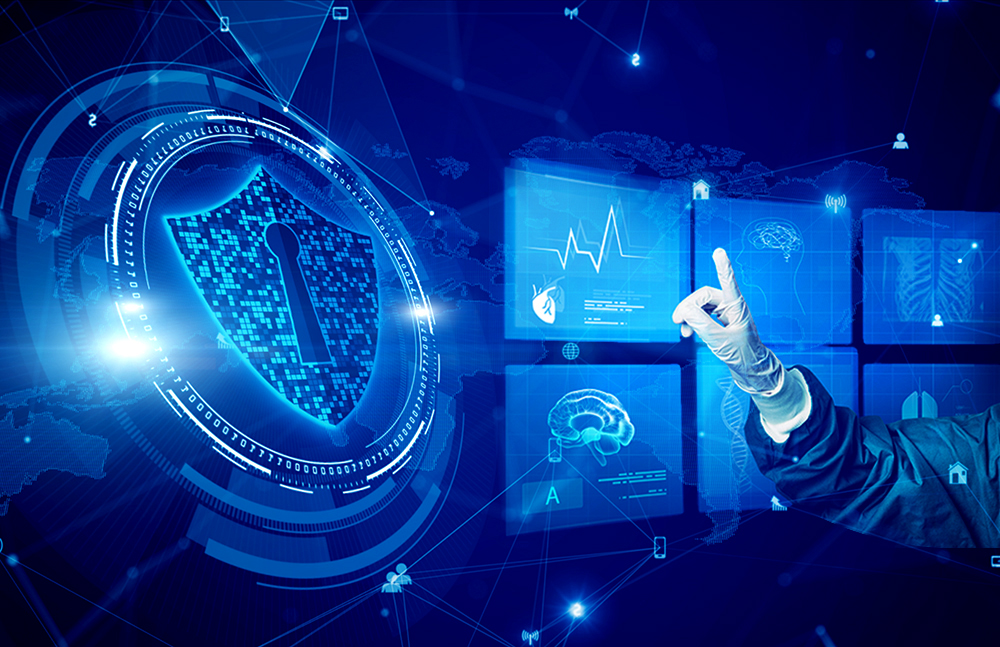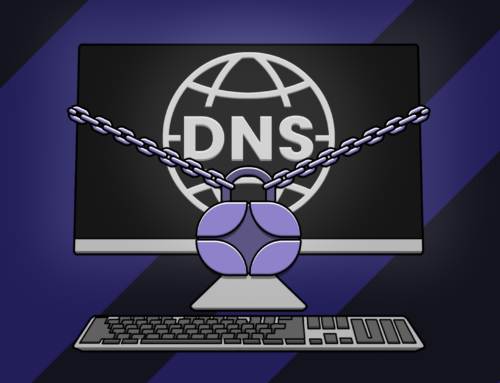
Cybersecurity in Healthcare: Protecting Patient Data.
Cybersecurity in Healthcare: Protect Patient Data and Systems
In today’s digital age, the healthcare sector faces unprecedented cybersecurity risks. The importance of cybersecurity in healthcare cannot be overstated, as healthcare institutions increasingly rely on digital systems for patient care, data storage, and healthcare operations. Protecting sensitive patient data and ensuring the integrity of healthcare data are paramount to maintaining patient safety and trust. This article explores the critical aspects of cybersecurity in healthcare, offering insights into the challenges and solutions for safeguarding patient data.
Understanding Cybersecurity in Healthcare
Definition and Importance of Cybersecurity
Cybersecurity in healthcare encompasses the policies, practices, and technologies designed to protect systems and data within the healthcare system. Its importance stems from the need to safeguard patient data and ensure the continuity of patient care. A healthcare data breach can compromise sensitive patient information, leading to identity theft, financial loss, and reputational damage for healthcare organizations. Therefore, robust healthcare cybersecurity measures are essential to mitigate cyber threats and maintain the trust of patients and stakeholders.
Key Components of Healthcare Cybersecurity
Effective healthcare cybersecurity relies on several key components. These include:
- Data encryption, which safeguards patient data by converting it into an unreadable format, protecting it from unauthorized access.
- Access controls, which ensure that only authorized personnel can access sensitive patient information, limiting the risk of insider threats.
- Security awareness training, which educates healthcare providers and staff about cybersecurity risks and best practices, fostering a culture of security within the healthcare industry.
Role of Cybersecurity in Patient Safety
The role of cybersecurity in patient safety is critical, as cyberattacks can directly impact patient care and well-being. A ransomware attack on a hospital, for example, can disrupt healthcare operations, delay medical procedures, and compromise medical device functionality. Protecting sensitive patient data and maintaining the integrity of healthcare data are essential to ensure that healthcare providers have access to accurate and reliable information when making critical decisions. Implementing cybersecurity measures is, therefore, not just about data protection but also about safeguarding patient lives.
Threats and Challenges in the Healthcare Industry
Common Cyber Threats Facing Healthcare Organizations
The healthcare sector is constantly under siege by a variety of cyber threats that can compromise patient safety and disrupt healthcare operations. Common cybersecurity threats targeting healthcare organizations include ransomware attacks, phishing campaigns, and malware infections. Ransomware attacks encrypt critical data, demanding a ransom payment for its release, effectively crippling healthcare institutions. Phishing campaigns trick healthcare providers and staff into divulging sensitive patient information or credentials. Malware infections can spread rapidly through healthcare systems, corrupting data and disrupting essential services. Protecting sensitive patient data from these cybersecurity threats requires a multi-layered approach and constant vigilance from cybersecurity experts.
Impact of Data Breaches on Patient Data
A data breach in a healthcare setting can have devastating consequences for both patients and healthcare providers. The impact of healthcare data breaches extends beyond financial losses and reputational damage. When sensitive patient information is exposed, patients may experience identity theft, medical fraud, and emotional distress. A healthcare data breach can also compromise patient care by disrupting access to patient records and medical data. Moreover, healthcare organizations may face legal and regulatory penalties for failing to protect patient data adequately. The importance of cybersecurity in healthcare, therefore, lies in its ability to prevent these breaches and safeguard patient data and data integrity.
Cybersecurity Challenges Specific to Medical Devices
Medical devices, increasingly connected to healthcare systems, present unique cybersecurity challenges. Many medical devices lack robust security controls, making them vulnerable to cyber threats and ransomware attacks. These vulnerabilities can be exploited to tamper with device functionality, compromise patient safety, and steal sensitive patient information. Protecting sensitive patient data on medical devices requires a proactive approach, including regular security assessments, patching vulnerabilities, and implementing strong access controls. Healthcare cybersecurity experts must collaborate with medical device manufacturers to enhance device security and protect patient safety. Addressing these cybersecurity risks is crucial for maintaining the integrity of patient care and ensuring the safety of medical data and patient safety.
Protecting Patient Data and Privacy
Strategies to Safeguard Patient Data
Effective strategies to safeguard patient data are paramount in the current digital landscape, where healthcare organizations are increasingly vulnerable to cyber threats. Implementing robust cybersecurity in healthcare requires a multi-faceted approach, which should include elements like:
- A comprehensive risk assessment to identify potential vulnerabilities within the healthcare system.
- Data encryption to protect sensitive patient data both in transit and at rest.
- Meticulously configured access controls to ensure that only authorized personnel can access patient information.
Regular security audits and penetration testing can further help healthcare providers identify and address weaknesses in their cybersecurity measures before they can be exploited by malicious actors.
Data Protection Measures for Healthcare Providers
Healthcare providers must adopt stringent data protection measures to protect patient data and maintain the trust of their patients. Specifically, this includes implementing several key strategies:
- Implementing multi-factor authentication (MFA) adds an extra layer of security, requiring users to provide multiple forms of verification before accessing sensitive patient information.
- Regular cybersecurity awareness training is crucial for educating healthcare staff about phishing attacks, malware infections, and other cybersecurity threats.
Healthcare providers should also establish a robust incident response plan to effectively address data breaches and other security incidents. Protecting sensitive patient data also involves employing advanced threat detection systems to monitor network traffic and identify suspicious activity in real-time, protecting sensitive data.
Importance of Data Privacy in Patient Care
Data privacy is of utmost importance in patient care, as it directly impacts patient trust and the quality of healthcare services. Protecting sensitive patient data is not only a legal and ethical obligation for healthcare providers, but it also fosters a culture of trust and transparency. When patients feel confident that their information is being safeguarded, they are more likely to share accurate and complete medical data with their healthcare provider. This, in turn, enables healthcare professionals to provide more informed and effective care. Maintaining data integrity and ensuring the confidentiality of patient information is, therefore, integral to delivering high-quality, patient-centered healthcare, reinforcing the importance of cybersecurity in healthcare across the entire healthcare industry.
Implementing Effective Cybersecurity Measures
Best Practices for Healthcare Cybersecurity
To implement robust healthcare cybersecurity, it’s essential for healthcare organizations to adopt cybersecurity best practices tailored to the healthcare sector. This begins with a comprehensive risk assessment to identify potential vulnerabilities and cyber threats within the healthcare system. Implementing strong access controls ensures that only authorized personnel can access sensitive patient data, reducing the risk of insider threats. Regular security awareness training educates healthcare providers and staff about cybersecurity risks and fosters a culture of security. Data encryption safeguards patient data and data integrity by converting it into an unreadable format, protecting it from unauthorized access.
Conducting Risk Assessments in Healthcare Systems
Conducting regular and thorough risk assessments is a cornerstone of healthcare cybersecurity, allowing healthcare institutions to identify and mitigate potential vulnerabilities in their healthcare system. An expert Network Security Assessment provides a thorough evaluation of a client’s network security posture, identifying pain points and recommending appropriate solutions. These assessments should consider all aspects of the healthcare system, including IT infrastructure, medical devices, and data storage practices. By identifying potential weaknesses, healthcare organizations can implement targeted security measures to protect patient data and prevent data breaches. Regular assessments are crucial for maintaining the integrity of patient care and ensuring patient safety.
Developing a Cybersecurity Framework for Healthcare Organizations
Developing a cybersecurity framework tailored to the healthcare sector is vital for establishing a structured approach to cybersecurity in healthcare. The framework should align with industry standards and regulatory requirements, such as HIPAA, and provide a roadmap for healthcare cybersecurity. It should include policies, procedures, and technical controls designed to protect sensitive patient data and prevent cyber threats. The framework should also address incident response planning, ensuring that healthcare organizations can effectively respond to and recover from data breaches and other security incidents. A well-defined framework ensures that healthcare operations are secure, patient data is protected, and patient information safe.
Future Trends in Healthcare Cybersecurity
Advancements in Cybersecurity Technologies
The future of healthcare cybersecurity will be shaped by advancements in cybersecurity technologies designed to protect sensitive patient data and safeguard healthcare systems. Artificial intelligence (AI) and machine learning (ML) are emerging as powerful tools for detecting and responding to cyber threats in real-time. These technologies can analyze vast amounts of data to identify suspicious activity and predict potential attacks. Blockchain technology offers secure and transparent data sharing, enhancing the integrity of patient data and reducing the risk of data breaches. Embracing these advanced technologies is crucial for staying ahead of evolving cybersecurity risks and protecting patient information.
The Evolving Role of Cybersecurity in Healthcare
The role of cybersecurity in healthcare is constantly evolving as healthcare organizations increasingly rely on digital systems for patient care and healthcare operations. Cybersecurity professionals must adapt to new challenges, such as the proliferation of connected medical devices and the rise of sophisticated cyber threats. A proactive approach to healthcare cybersecurity is essential, involving continuous monitoring, threat intelligence, and incident response planning. The importance of cybersecurity will only continue to grow as healthcare becomes more digitized, emphasizing the need for robust security measures and constant vigilance. Investing in healthcare cybersecurity is vital to protecting patient data.
Preparing for Future Cyber Threats in the Healthcare Industry
Preparing for future cyber threats in the healthcare industry requires a forward-thinking approach that anticipates and mitigates potential risks. Proactive Threat Management services are focused on continuously monitoring for cyber threats and implementing rapid responses to prevent and mitigate attacks. Healthcare organizations must stay informed about emerging cyber threats and vulnerabilities and invest in advanced security tools and technologies. Collaboration and information sharing are also crucial, as healthcare providers can benefit from sharing threat intelligence and cybersecurity best practices. By taking a proactive approach, healthcare institutions can better protect patient data and ensure the safety of patient care.
5 Surprising Facts About Cybersecurity in Healthcare Protecting Patient Data
- Approximately 90% of healthcare organizations have experienced a data breach in the past few years.
- Healthcare data is 50 times more valuable on the black market than credit card information.
- Over 70% of healthcare providers lack a formal cybersecurity strategy, making them more vulnerable to attacks.
- Ransomware attacks against healthcare facilities increased by 123% in 2020 alone, impacting patient care.
- Healthcare organizations that invest in cybersecurity training for their staff can reduce the risk of breaches by up to 70%.
What is the importance of cybersecurity in healthcare?
The importance of cybersecurity in healthcare cannot be overstated. With the rise of digital health records and telehealth services, protecting patient data has become a crucial priority for healthcare organizations. Effective cybersecurity measures safeguard sensitive patient information from unauthorized access, ensuring compliance with regulations like the Health Insurance Portability and Accountability Act (HIPAA). A robust cybersecurity posture not only protects patient privacy but also enhances patient outcomes by maintaining trust in healthcare systems.
How do healthcare organizations face cybersecurity threats?
Healthcare organizations face numerous cybersecurity threats, including ransomware attacks, phishing scams, and data breaches. These threats can disrupt patient care and compromise the confidentiality of patient data. As cybercriminals become more sophisticated, healthcare providers must remain vigilant and proactive in their cybersecurity strategies to protect against evolving cyber threats.
What are common cybersecurity practices for safeguarding patient data?
Common cybersecurity practices for safeguarding patient data include implementing strong access controls, conducting regular risk assessments, and training staff on data security protocols. Healthcare organizations should also employ encryption for sensitive information and regularly update their cybersecurity software. These practices help ensure that patient data remains protected against unauthorized access and security risks.
What are the security risks associated with medical devices?
Medical devices are increasingly connected to the internet, making them potential targets for cyber threats. Security risks associated with these devices include vulnerabilities that can be exploited by hackers to gain access to healthcare networks. To mitigate these risks, healthcare organizations should implement stringent security measures, including regular updates and monitoring of medical device security.
What is the average cost of a data breach in healthcare?
The average cost of a data breach in healthcare is significantly higher than in other industries, often exceeding millions of dollars. This cost includes not only the direct financial impact but also the potential loss of patient trust and reputational damage. Implementing robust cybersecurity measures can help mitigate the financial repercussions associated with data breaches.
How can healthcare organizations protect patient privacy?
Healthcare organizations can protect patient privacy by adopting comprehensive data protection strategies. This includes ensuring that only authorized personnel have access to sensitive patient data and using encryption to secure information transmitted over networks. Regular training on cybersecurity best practices for staff also plays a critical role in safeguarding patient privacy.
What strategies can be used to enhance healthcare data security?
Strategies to enhance healthcare data security include developing a strong cybersecurity framework, conducting employee training, and regularly updating security protocols. Healthcare organizations should also invest in advanced technologies such as artificial intelligence and machine learning to detect and respond to threats in real-time. By adopting these strategies, healthcare providers can significantly reduce their cyber risk and protect patient data effectively.
What are the evolving cyber threats in the healthcare industry?
Evolving cyber threats in the healthcare industry include sophisticated ransomware attacks, data exfiltration, and targeted phishing campaigns. As technology advances, so do the tactics used by cybercriminals, making it essential for healthcare organizations to stay informed about potential threats and continuously update their cybersecurity practices to defend against these challenges.










